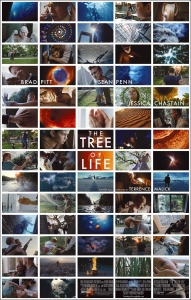The value of qualitative research
 “All polls of opinion must be superficial. They reveal the top of what people think organized into common sense. What people really think is always partly hidden” – Susan Sontag
“All polls of opinion must be superficial. They reveal the top of what people think organized into common sense. What people really think is always partly hidden” – Susan Sontag
Terrence Malick’s The Tree of Life is a towering, visionary and epic film in scope.
At its heart is a man (Sean Penn) in the midst of a mid-life crisis, forced to confront his negligible place in the universe.
The film moves seamlessly between portraying snapshots of a childhood in 1950s rural Texas to depicting the origins of life itself.
In a voice over at the beginning of the move, Jessica Chastain tells us that we must choose between the “two ways through life – the way of nature and the way of grace”.
“Grace doesn’t try to please itself. Accepts being slighted, forgotten, disliked. Accepts insults and injuries. Nature only wants to please itself. Get others to please it too. Likes to lord it over them. To have its own way. It finds reasons to be unhappy when all the world is shining around it. And love is smiling through all things.”
Brad Pitt is magnificent as the foreboding father who rules by fear (nature), while Chastain plays the saint-like and loving mother (grace).
One of the themes running through the film is how we become the person we are now.
In Penn’s case, nature (the father’s genetics) and grace (the mother’s) are at odds and compete for a hold over him. He prays to be more like his mother but knows he is his father’s son (“I’m more like you than her”).
Penn’s middle-aged character is an accumulation of all that has come before him: both the life he has lived and all of life since the very dawn of time.
At one point, we move back thousands of years to a river in a forest where a dinosaur is seen stepping on the head of a smaller, weaker one, pinning it down for a minute, before walking away. The reason being, it is the dominant creature.
We later see Penn as a younger boy by the river, holding a BB gun to his little brother’s hand and then, despite promising not to, pulling the trigger. Nature holds the same grip over him.
Examining our genetics and tracing back our DNA thousands of years can explain who we are and how we got here. It can even help us to distinguish between different human beings.
However, we are also the accumulation of all the little, seemingly unnoteworthy experiences that happen to us each day.
You cannot understand the man Penn becomes without observing these first.
Nor can you measure the impact of any of these individual moments.
The quantitative evidence can help explain the bigger picture, tell the overarching story and provide the critical context we need.
It does not, however, fully explain the why or the how, and only reveals a surface level of understanding.
It often provides all the information we need.
However, for a deeper understanding of the man, we need to the look at the cumulative effect of the smaller, seemingly innocuous details of his upbringing and day-to-day life.
The kind of thing that can’t be quantified.